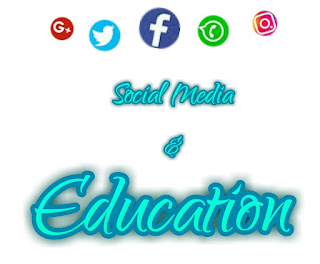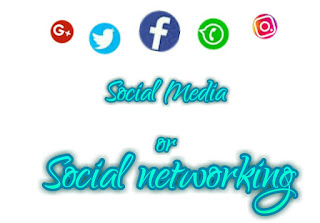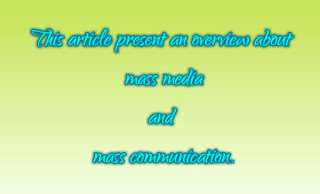Social media and education
Social Media and education:
Social media in education is the main part that this research paper is trying to investigate on. In the same context, it is worthwhile to consider Social Media platforms in education as a significant topic to discuss its role and the way it reshapes today’s education.
As has been noted before, social media sites are online websites and applications that play currently a vital role in building social relations with other people allowing them to share personal interests, activities and careers.
Moreover, it has important benefits in terms of education. Social media has modernized communication; the way we interact with others in our daily life and particularly education. However, the impacts social platforms have on learners are discussed in the next section.
The impact of social media sites
Here is a brief overview of the impacts of social platforms on social, business, politics and education. To start with, some of the effects social media on socialization is social communication. Social media website becomes a part of society’s everyday life, in that it provides a great opportunity for users (in facebook application) to like, comment and send invitations.
a- Benefits of social media in education
In the present time, the new platform technologies present various opportunities such as education and studies for students and teachers to have access to information and learning interests. That is, the use of social platforms in education allows learners to get knowledge from teachers in the World Wide Web, exchange idea and engage with the learning groups of the same branch. As a matter of fact, today students are accessing social media platforms and engage online with their classmates and even teachers for educational purposes. Previous studies have shown that social platforms come to be an educational tool for learners. “Social networks in the context of education are a tool that can be used for quickly finding the solution to a particular problem. By using social networks, groups of related persons can be created to exchange knowledge and information” Lewis, K., Kaufman, J., Gonzalez, M., Wimmer, A., & Christakis, N. (2008).
Also, other studies showed that “Students are communicating on social networks (Facebook for example) using a style one-to-many in which they are the creators disseminating content to their friends. Also, they spent more time observing content on Facebook than posting content” (Pempek, T. A., Yermolayeva, Y. A., & Calvert, S. L. (2009).
Social networks not merely help students with assignment but also provide great opportunities for communication between students, administrators and teachers. As a last note, learners are receiving information at a rapid speed. We are in a world where internet connection is very important in which it offers number of chances for interaction and learning.
As we have discussed some benefits of using of social media platforms in education, it is very important to note that, it also has a number of negative effects where students are completely distracted and interrupted by their phone as we will see in the next section.
b- Negative effects of social media in education
Social platforms not only have positive impacts but also some negative effects on education. To start with, social media platforms on education are having numerous disadvantages as explained below:
- Lack of concentration on learning due to the accessibility of information on the internet
- Students give less attention to teachers during class
- Relying on social media users to provide answers
- Spending more time on social media can distract students
However, a number of students find it hard to live their life normally and limit the use of social networking. That is to say, the new technologies era causes laziness, in that some students rely on the available information they receive, for instance from facebook groups and as have been noted before, social networking also causes distraction for students to concentrate on their studies. In term of education, it is a waste of time if social media platform is not used properly in which it will affect academic performance of students.
In line with previous studies, they concluded that because of the popularity of the social media sites and the number of information they provide, they are often used by only few learners for academic purposes. Moreover, other previous survey made by Dahlstrom, de Boor, Grunwald, and Vockley from across the US of 3000 students. They have demonstrated that “90% of college students use Facebook and 37% use Twitter (Dahlstrom, de Boor, Grunwald,& Vockley, 2011)”.
Indeed, the greater number of online internet users are students of all levels of schools and universities, which it helps them to connect far and near and have access to information concerning their educational learning.




Comments
Post a Comment